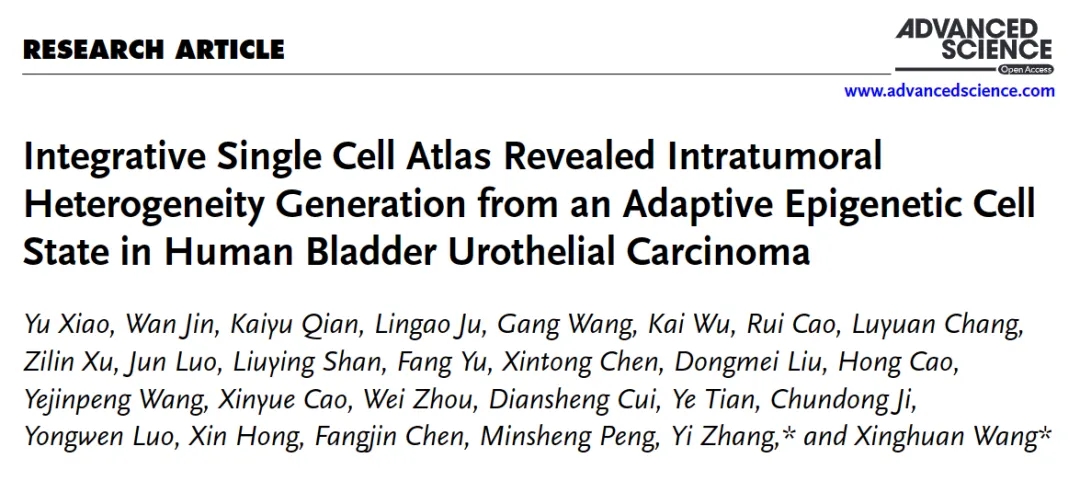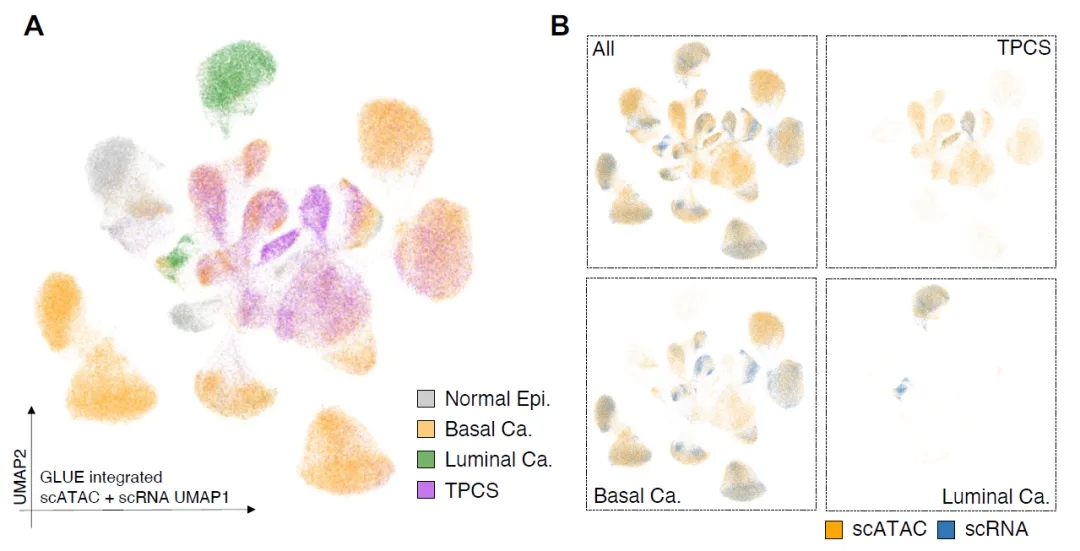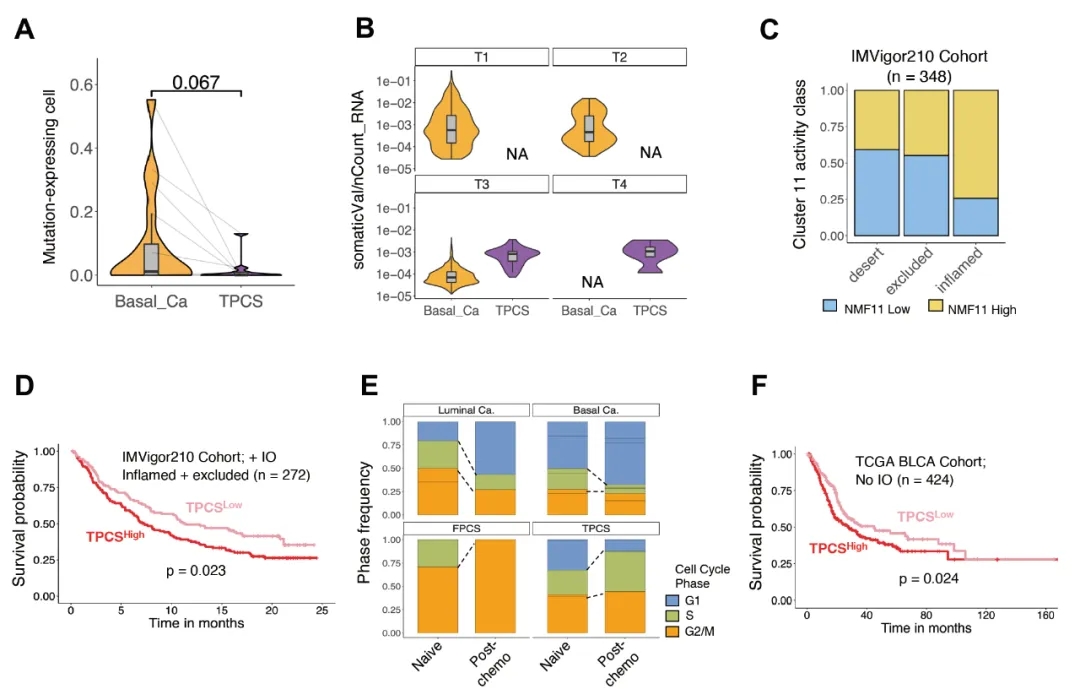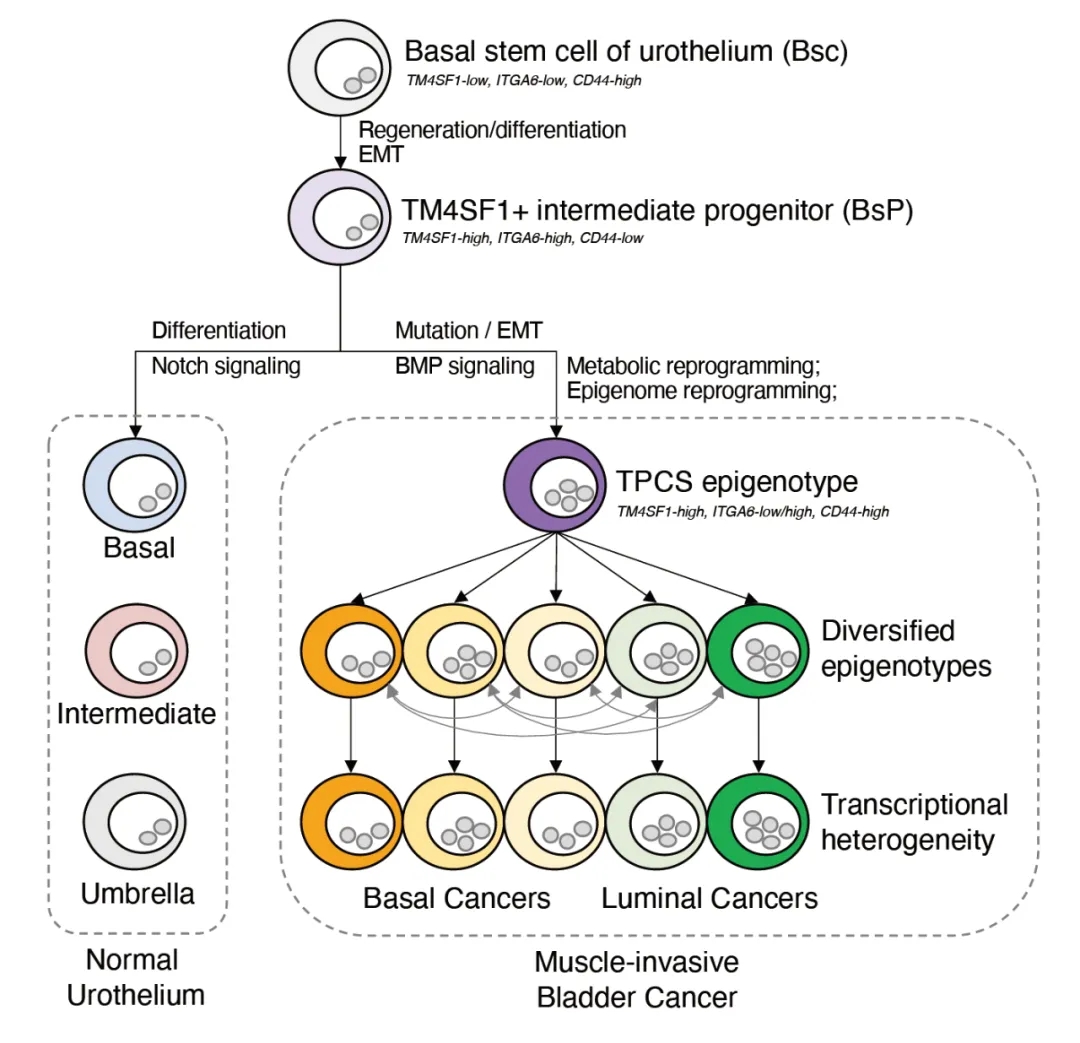

On April 6, 2024, Professor Wang Xinghuan's team from Zhongnan Hospital of Wuhan University published a research result titled "Integrated Single Cell Atlas Revealed Intratumoral Heterogeneity Generation from an Adaptive Epigenetic Cell State in Human Blade Urothelial Carcinoma"[1] in the comprehensive journal Advanced Science.

Intratumor heterogeneity (ITH) in bladder cancer leads to treatment resistance and immune escape, affecting clinical prognosis. The molecular and cellular mechanisms that promote ITH production in bladder cancer are not well understood. Our research group previously discovered TM4SF1, a key tumor marker in bladder cancer[2], and based on this, found a TM4SF1 positive cancer cell subgroup (TPCS), which is a key node in the epigenetic evolution of bladder cancer and can cause intra-tumor heterogeneity, thus driving tumor development.

Through analyzing cell epigenetic characteristics and gene multiomics characteristics of bladder cancer from early stage to late stage, our research group has followed the development path of TPCS with the EpiTrace, a single-cell division age tracing technology independently developed with Professor Zhang Yi's team[3]: Different progenitor cells produced low-grade non-invasive and high-grade invasive bladder cancer, and epigenome reprogramming led to transcriptional heterogeneity in bladder cancer.

In the early stages of cancer development, TPCS originates from epithelial mesenchymal transition, possessing stem cell-like characteristics and producing tumor specific adaptive immune escape ability, thus being able to produce various types of cell offspring. Moreover, the prevalence of these stem cell like TPCS is associated with the progression and poor prognosis of bladder cancer.

The results of this study indicate that bladder cancer cells have evolved a special subpopulation of TPCS to adapt to the peripheral environment by changing their epigenetic characteristics rather than just genetic variation during their development. TPCS can lead to tumor heterogeneity through its unique epigenome, thereby promoting tumor immune evasion and chemotherapy resistance. This paper is a multi-center collaborative research led by Hubei Provincial Key Laboratory of Urology/Urology Diseases, Zhongnan Hospital of Wuhan University, supported by the National Natural Science Foundation of China, the Central University Basic Research Fund, Hubei Provincial Department of Science and Technology, and Zhongnan Hospital of Wuhan University.
References:
[1] Xiao Y, Jin W, Qian K, et al. Integrative Single Cell Atlas Revealed Intratumoral Heterogeneity Generation from an Adaptive Epigenetic Cell State in Human Bladder Urothelial Carcinoma. Adv. Sci. 2024, 2308438. doi: 10.1002/advs.202308438.
[2] Cao R, Wang G, Qian K, et al. TM4SF1 regulates apoptosis, cell cycle and ROS metabolism via the PPARγ-SIRT1 feedback loop in human bladder cancer cells. Cancer Lett. 2018, 414:278-293. doi: 10.1016/j.canlet.2017.11.015.
[3] https://epitrace.readthedocs.io/en/latest/index.html
Links:
https://onlinelibrary.wiley.com/doi/10.1002/advs.202308438